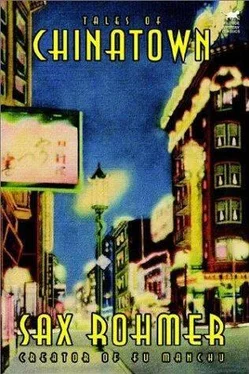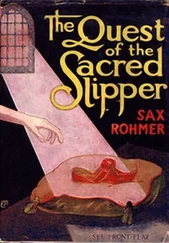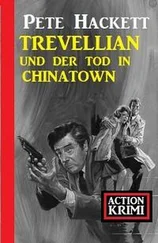Sax Rohmer - Tales of Chinatown
Здесь есть возможность читать онлайн «Sax Rohmer - Tales of Chinatown» весь текст электронной книги совершенно бесплатно (целиком полную версию без сокращений). В некоторых случаях можно слушать аудио, скачать через торрент в формате fb2 и присутствует краткое содержание. Жанр: Детектив, на английском языке. Описание произведения, (предисловие) а так же отзывы посетителей доступны на портале библиотеки ЛибКат.
- Название:Tales of Chinatown
- Автор:
- Жанр:
- Год:неизвестен
- ISBN:нет данных
- Рейтинг книги:4 / 5. Голосов: 1
-
Избранное:Добавить в избранное
- Отзывы:
-
Ваша оценка:
- 80
- 1
- 2
- 3
- 4
- 5
Tales of Chinatown: краткое содержание, описание и аннотация
Предлагаем к чтению аннотацию, описание, краткое содержание или предисловие (зависит от того, что написал сам автор книги «Tales of Chinatown»). Если вы не нашли необходимую информацию о книге — напишите в комментариях, мы постараемся отыскать её.
Tales of Chinatown — читать онлайн бесплатно полную книгу (весь текст) целиком
Ниже представлен текст книги, разбитый по страницам. Система сохранения места последней прочитанной страницы, позволяет с удобством читать онлайн бесплатно книгу «Tales of Chinatown», без необходимости каждый раз заново искать на чём Вы остановились. Поставьте закладку, и сможете в любой момент перейти на страницу, на которой закончили чтение.
Интервал:
Закладка:
Grantham looked up with a start. A new and subtle perfume had added itself to that with which the air of the room was already laden. He found Zahara standing beside him.
His glance travelled upward from a pair of absurdly tiny brocaded shoes past slender white ankles to the embroidered edge of a wonderful mandarin robe decorated with the figures of peacocks; upward again to a little bejewelled hand which held the robe confined about the slender figure of Zahara, and upward to where, sideways upon a bare shoulder peeping impudently out from Chinese embroidery, rested the half-mocking and half-serious face of the girl.
"Hallo!" he said, smiling, "I didn't hear you come in."
"I walk very soft," explained Zahara, "because I am not supposed to be here."
She looked at him quizzically. "I don't see you for a long time," she added, and in the tone of her voice there was a caress. "I saw you more often in Port Said than here."
"No," replied Grantham, "I have been giving Agapoulos a rest. Besides, there has been nobody worth while at any of the hotels or clubs during the last fortnight."
"Somebody worth while coming to-night?" asked Zahara with professional interest.
At the very moment that she uttered the words she recognized her error, for she saw Grantham's expression change. Yet to her strange soul there was a challenge in his coldness and the joy of contest in the task of melting the ice of this English reserve.
"Lots of money," he said bitterly; "we shall all do well to- night."
Zahara did not reply for a moment. She wished to close this line of conversation which inadvertently she had opened up. So that, presently:
"You look very lonely and bored," she said softly.
As a matter of fact, it was she who was bored of the life she led in Limehouse-in chilly, misty Limehouse-and who had grown so very lonely since Safiyeh had come. In the dark gray eyes looking up at her she read recognition of her secret. Here was a man possessing that rare masculine attribute, intuition. Zahara knew a fear that was half delightful. Fear because she might fail in either of two ways and delight because the contest was equal.
"Yes," he replied slowly, "my looks tell the truth. How did you know?"
Zahara observed that his curiosity had not yet become actual interest. She toyed with the silken tassel on her robe, tying and untying it with quick nervous fingers and resting the while against the side of the carved chair.
"Perhaps because I am so lonely myself," she said. "I matter to no one. What I do, where I go, if I live or die. It is all-"
She spread her small hands eloquently and shrugged so that another white shoulder escaped from the Chinese wrapping. Thereupon Zahara demurely drew her robe about her with a naive air of modesty which nine out of ten beholding must have supposed to be affected.
In reality it was a perfectly natural, instinctive movement. To Zahara her own beauty was a commonplace to be displayed or concealed as circumstances might dictate. In a certain sense, which few could appreciate, this half-caste dancing girl and daughter of El Wasr was as innocent as a baby. It was one of the things which men did not understand. She thought that if Harry Grantham asked her to go away with him it would be nice to go. Suddenly she realized how deep was her loathing of this Limehouse and of the people she met there, who were all alike.
He sat looking at her for some time, and then: "Perhaps you are wrong," he said. "There may be some who could understand."
And because he had answered her thoughts rather than her words, the fear within Zahara grew greater than the joy of the contest.
Awhile longer she stayed, seeking for a chink in the armour. But she failed to kindle the light in his eyes which-unless she had deluded herself-she had seen there in the past; and because she failed and could detect no note of tenderness in his impersonal curiosity:
"You are lonely because you are so English, so cold," she exclaimed, drawing her robe about her and glancing sideways toward the door by which Agapoulos might be expected to enter. "You are bored, yes. Of course. You look on at life. It is not exciting, that game-except for the players."
Never once had she looked at him in the Right Way; for to have done so and to have evoked only that amused yet compassionate smile would have meant hatred, and Zahara had been taught that such hatred was fatal because it was a confession of defeat.
"I shall see you again to-night, shall I not?" he said as she turned away.
"Oh, yes, I shall be-on show. I hope you will approve."
She tossed her head like a petulant child, turned, and with never another glance in his direction, walked from the room. She was very graceful, he thought.
Yet it was not entirely of this strange half-caste, whose beauty was provoking, although he resolutely repelled her tentative advances, that Grantham was thinking. In that last gesture when she had scornfully tossed her head in turning aside, had lain a bitter memory. Grantham stood for a moment watching the swaying draperies. Then, dropping the end of his cigarette into a little brass ash-tray, he took up his hat, gloves, and cane from the floor, and walked toward the doorway through which he had entered.
A bell rang somewhere, and Grantham paused. A close observer might have been puzzled by his expression. Evidently changing his mind, he crossed the room, opened the door and went out, leaving the house of Agapoulos by a side entrance. Crossing the little courtyard below he hurried in the direction of the main street, seeming to doubt the shadows which dusk was painting in the narrow ways.
Many men who know Chinatown distrust its shadows, but the furtive fear of which Grantham had become aware was due not to anticipation but to memory-to a memory conjured up by that gesture of Zahara's.
There were few people in London or elsewhere who knew the history of this scallywag Englishman. That he had held the King's commission at some time was generally assumed to be the fact, but that his real name was not Grantham equally was taken for granted. His continuing, nevertheless, to style himself "Major" was sufficient evidence to those interested that Grantham lived by his wits; and from the fact that he lived well and dressed well one might have deduced that his wits were bright if his morals were turbid.
Now, the gesture of a woman piqued had called up the deathless past. Hurrying through nearly empty squalid streets, he found himself longing to pronounce a name, to hear it spoken that he might linger over its bitter sweetness. To this longing he presently succumbed, and:
"Inez," he whispered, and again more loudly, "Inez."
Such a wave of lonely wretchedness and remorse swept up about his heart that he was almost overwhelmed by it, yet he resigned himself to its ruthless cruelty with a sort of savage joy. The shadowed ways of Limehouse ceased to exist for him, and in spirit he stood once more in a queer, climbing, sunbathed street of Gibraltar looking out across that blue ribbon of the Straits to where the African coast lay hidden in the haze.
"I never knew," he said aloud. And one meeting this man who hurried along and muttered to himself must have supposed him to be mad. "I never knew. Oh, God! if I had only known."
But he was one of those to whom knowledge comes as a bitter aftermath. When his regiment had received orders to move from the Rock, and he had informed Inez of his departure, she had turned aside, just as Zahara had done; scornfully and in silence. Because of his disbelief in her he had guarded his heart against this beautiful Spanish girl who (as he realized too late) had brought him the only real happiness he had ever known. Often she had told him of her brother, Miguel, who would kill her-would kill them both-if he so much as suspected their meetings; of her affianced husband, absent in Tunis, whose jealousy knew no bounds.
Читать дальшеИнтервал:
Закладка:
Похожие книги на «Tales of Chinatown»
Представляем Вашему вниманию похожие книги на «Tales of Chinatown» списком для выбора. Мы отобрали схожую по названию и смыслу литературу в надежде предоставить читателям больше вариантов отыскать новые, интересные, ещё непрочитанные произведения.
Обсуждение, отзывы о книге «Tales of Chinatown» и просто собственные мнения читателей. Оставьте ваши комментарии, напишите, что Вы думаете о произведении, его смысле или главных героях. Укажите что конкретно понравилось, а что нет, и почему Вы так считаете.












